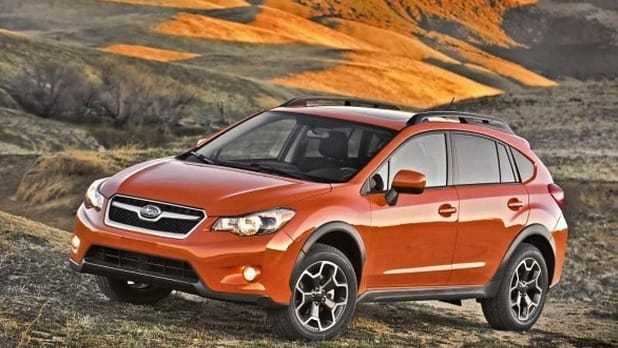Business Leasing: A Comprehensive Guide for Small and Medium Enterprises

In the fast-evolving world of business, vehicle leasing has risen as a key strategy for companies seeking operational efficiency. This modern approach to acquiring vehicles offers a mix of financial benefits, adaptability, and tax benefits, making it a smart choice for contemporary enterprises.
But what sets business leasing apart from personal leasing, and how does it cater specifically to the needs of small and medium-sized enterprises (SMEs)? Why should a company lease cars and not buy them? How does it align with a company's financial strategy and operational goals? In this article, gowago explains you the mechanics of business leasing, uncovering its various forms and the unique advantages each presents.
- What is Business Leasing?
- What is the difference between business and private leasing?
- Why Should Your SME Lease Cars? The Benefits of Business Leasing
- Conclusion
What is Business Leasing?
Business leasing, also called company leasing or in some cases fleet leasing, is a strategic approach that allows companies to access and utilize vehicles without the high costs and responsibilities associated with outright purchasing. This financial arrangement is a type of contractual agreement where a business agrees to use vehicles for a set period in return for monthly payments.
This period is typically 2-4 years, depending on the specific needs of the business and the terms of the lease agreement. This system offers a flexible, cost-effective solution for businesses that require vehicles for their operations but want to avoid putting up a lot of initial capital to buy them. The saved capital can be used to invest into other areas of the business.
Learn more about the Gowago Business Leasing
What is the difference between business and private leasing?
The distinction between business leasing and private leasing lies in their core objectives and the specific needs they address. While both offer the fundamental benefit of using a vehicle without owning it, the structure, financial implications, and benefits vary greatly.
Target Audience and Purpose:
Private leasing is tailored for individual consumers, focusing on personal use. It typically involves leasing a car for personal or family use, emphasizing comfort, style, and personal preferences.
In contrast, business leasing is designed for companies and corporations. It's not just about getting from point A to B; it's about meeting the diverse operational needs of a business, such as cargo transportation, employee commuting, or providing vehicles for sales staff.
Tax Implications and Financial Benefits:
One of the significant differences lies in tax treatment. Private leases cannot be deducted from the individual’s taxes. The costs are borne by the individual, with no deductions available.
Business leases, however, can provide substantial tax advantages. Lease payments are often tax-deductible as business expenses, reducing the overall taxable income of the business. This can result in considerable savings, especially for several cars.
However, especially for SMEs, where a company car might also be used simultaneously for private purposes, it is important to minutely document how many kilometres the car drives for business and for purposes outside of work.
Financial Structure and Budgeting:
In business leasing, the financial structure is aligned with business budgeting and accounting practices. Businesses can plan and budget for lease payments as part of their operational expenses.
Private leasing is more about individual budgeting and financing, often with personal credit and payment plans tailored to individual financial situations.
Why Should Your SME Lease Cars? The Benefits of Business Leasing
Financial Efficiency
For small and medium-sized enterprises (SMEs), managing capital effectively is not just important—it's crucial for survival and growth. Here's where business leasing comes as a saviour:
Minimized Upfront Investment: Purchasing vehicles outright can be a heavy financial burden, particularly for SMEs. Business leasing mitigates this by eliminating the need for a large upfront investment. This means that instead of tying up significant amounts of capital in depreciating assets, e.g. a car, you can use those funds for other critical areas of your business, like expansion, research and development, or enhancing your marketing efforts.
Predictable Budgeting: With leasing, your costs become regular and predictable. You'll have a clear idea of your monthly outgoings for vehicle usage, which aids in more accurate budgeting and financial planning. This regularity can be a game-changer for SMEs that need to closely monitor and manage their cash flow.
No Depreciation Worries: Owning a car means dealing with depreciation. With leasing, the depreciation cost is borne by the leasing company, not your business. This removes a significant financial risk and aids in maintaining a healthier balance sheet.
Operational Flexibility
The business environment is ever-changing, and so are your company's needs. Business leasing shines in its ability to adapt to these changes:
Scalability: As your business grows, your vehicle needs may increase. Leasing allows you to easily add vehicles to your business car fleet. Conversely, if you need to downsize, leasing contracts have a duration of max. 5 years. After that, you can reduce your number of cars or change the type of cars without the hassle of selling off your previous cars - you just give them back.
Access to Latest Models: Leasing gives you the opportunity to use the latest vehicle models with updated technology and better fuel efficiency, or even change from combustion engines to electric vehicles. This not only enhances your company's image but also ensures you are utilizing vehicles with the latest safety features and environmental compliance, and will save you money in fuel costs.
Tax and Employee Incentive Benefits
The fiscal advantages of business leasing can be substantial:
Tax Deductible: Lease payments are tax-deductible as business expenses. This can result in significant tax savings, reducing your overall taxable income and thus your tax liability.
Employee Incentives: Offering a company car can be a very attractive perk for employees. It can be an effective tool for attracting top talent, retaining staff, and boosting morale. The best part? It's often more cost-effective for the company than offering equivalent salary increases.
Record Keeping and Reporting: Leasing simplifies the record-keeping process. Payments are regular and can easily be accounted for, simplifying financial reporting and tax filing.
Discover the Gowago Business Leasing
Environmental Considerations with Leasing
Eco-Friendly Options: gowago’s inventory is comprised of roughly 40% electric and hybrid-electric vehicles. This can help your business reduce its carbon footprint and meet sustainability goals, as well as show your company’s sustainable consciousness.
Regular Vehicle Upgrades: With regular upgrades possible through leasing, your company can benefit from the latest advancements in fuel-efficient and environmentally friendly vehicle technology.
Conclusion
In conclusion, business leasing emerges as a strategic choice for companies aiming to enhance their mobility management, offering a harmonious blend of financial flexibility, operational adaptability, and potential tax benefits. It caters adeptly to the diverse needs of businesses across various sectors, supporting their growth and agility in a dynamic business environment.
As companies continue to seek solutions that balance cost-efficiency with operational effectiveness, business leasing stands as a robust, adaptable option that aligns well with these objectives, further reinforcing its value in maintaining competitive agility and financial health in the ever-evolving business landscape.


